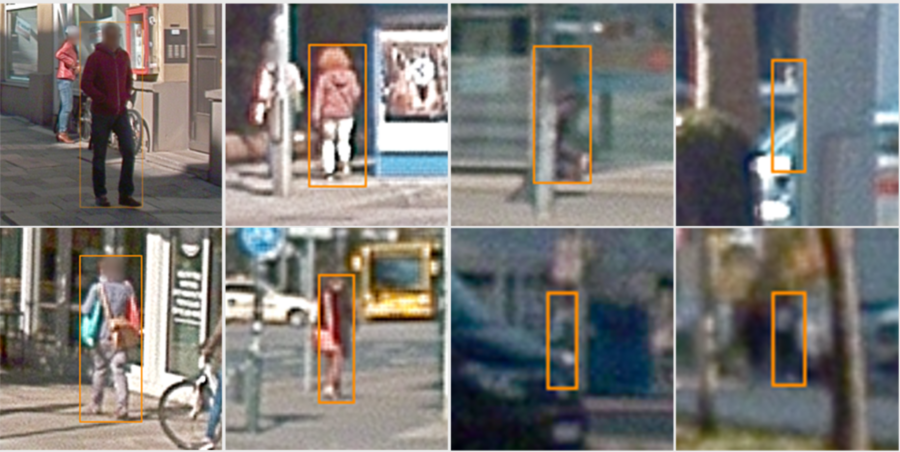Making automated driving safer: RELiABEL project launched

Challenges that the researchers in the RELiABEL project are tackling:Images that were not captured with high enough resolution (right half) and images that lack descriptions, known as annotations (left half), are unsuitable as training data for an AI, as they can lead to incorrect conclusions and therefore incorrect behavior.
Automated driving is not possible without AI: video cameras record the vehicle's surroundings, an artificial intelligence interprets the data and makes a decision: brake, drive on, turn off. The better an AI understands the surrounding data, the safer its next step will be. This is where the RELiABEL project, funded by the Federal Ministry of Education and Research, comes in: Together with the technology start-up QualityMatch GmbH from Heidelberg, scientists at the University of Wuppertal are researching methods for reliably labeling image data for automated driving. "In order for the technology in the car to be able to do anything with the image captured in traffic, it must first be trained. This happens with numerous labeled - we call them annotated - images in which, for example, traffic lights are labeled as traffic lights and traffic signs as traffic signs at the metadata level," explains project manager Dr. Matthias Rottmann from the University of Wuppertal.Challenges faced by researchers in automated driving include images that have not been captured and stored by the camera in high enough resolution and the image content cannot be clearly determined, as well as annotations that are made manually by humans, as they are a tedious and monotonous task. Both cases are sources of inaccurate or incorrect labeling.
The consortium is now working on methods with which data can be described efficiently and reliably at the same time. On the one hand, data points in the images are labeled multiple times, while on the other, mathematical methods are used to save manual annotations and reliably supplement them. "The research project aims to contribute to obtaining reliable data for reliable artificial intelligence," summarizes Rottmann.
The joint project "RELiABEL" is being funded by the BMBF with around 750,000 euros as part of the KI4KMU announcement, which aims to further develop small and medium-sized enterprises (SMEs), particularly with regard to digitalization and the use of artificial intelligence.
